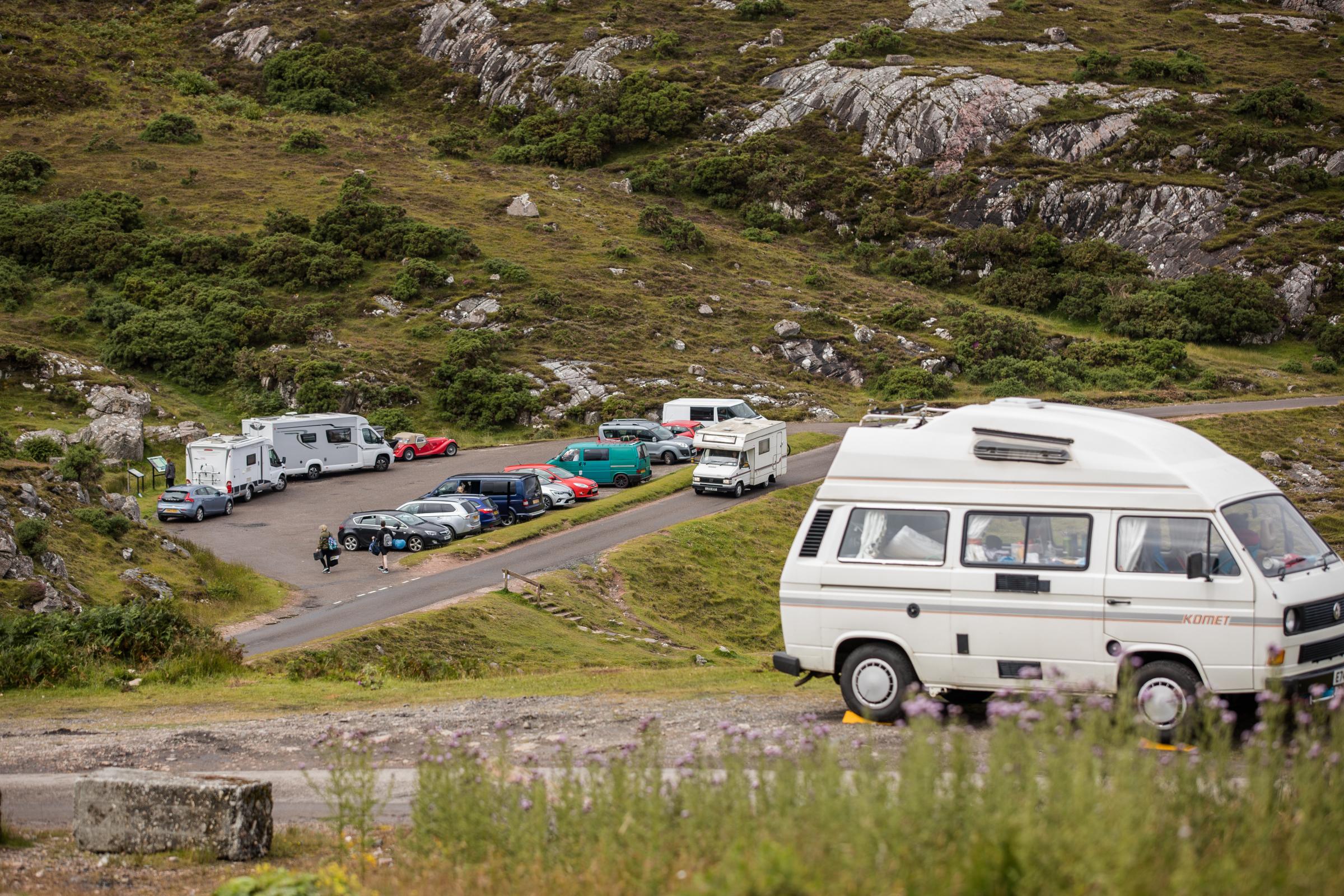
THE Scottish hospitality sector is “on the edge of large-scale business failure” with only one third making a profit this summer.
Businesses are already going bust and more closures are predicted by industry leaders who are calling on both Westminster and the Scottish Government to wake up to the crisis.
Brexit, the pandemic and a shortage of affordable housing for staff in some parts of the country have already led to restaurants, bars, hotels and cafes having to cut opening hours or reduce their offering.
Now they are faced with soaring energy bills which is leading businesses to consider closing during the winter, throwing hundreds of people out of work.
The rocketing cost of living is also affecting consumer demand with many people no longer able to afford to travel or eat out.
Some examples of the crippling costs for businesses include an Aberdeen Chinese takeaway which last week was hit by a £10,000 gas bill – 10 times more than the £1000 usually charged for each quarter. This was on top of the Royal Crown’s electricity bill rising from £1000 to £4000. The price rises are forcing owner Martin Tang to consider closing the take-away, which employs three full-time and two part-time staff.
Meanwhile a small Highland hotel, which did not want to be named, is facing an increase of at least 380% for its energy use.
“Their combined electricity and gas on the current tariff that is ending is £25,000 per annum but their lowest new quote is £120,000, although over £140,000 has also been quoted,” said Leon Thompson, executive director of UK Hospitality Scotland.

Another hotel in Argyll and Bute has told it will have to pay close to £100k per annum for energy, he said.
“We are already seeing businesses up for sale and could well be looking at many more business failures as a result of the situation we are in,” said Thompson.
“We could see people losing jobs as businesses close either permanently or temporarily. It is already very difficult for a lot of workers as they may not be getting the hours they need.
“Two thirds of hospitality businesses right now are saying they are not making any profit because of all the costs.”
With bars, restaurants, hotels, and cafes forced to close or operate at restricted capacity over the last two years of the pandemic, Thompson said it was “critical” they made a profit this summer to pay off some of the accumulated debt.
However, staffing issues are continuing to dog businesses as the industry is still 30,000 people short.
“Reduced opening hours not only have an impact on their ability to generate more revenue but also impact the visitor experience as well, with people sometimes struggling to find places to eat and drink. It is not good news for Scotland as a leading visitor destination,” Thompson said.
The biggest concern now, however, is the increased energy costs.
“I have members saying their energy bills are up 300% and while it is obviously grim for households, for businesses there is nothing to stop this increase going on and on as there is no energy cap for them.
“It is an absolute nightmare scenario and some of my rural members are now at the point of looking at whether it will be financially viable for them to stay open through autumn and winter.”
As well as the increased costs, he said consumer confidence is “unclear”.
“Eating out, drinking and spending in retail doesn’t seem to be as strong as people had hoped for, which suggests people already tightening their belts, so even though they are having holidays they are trying to minimise the money they spend,” said Thompson.
“That is already going on and businesses are wondering if visitors will be coming in autumn and winter. Forward bookings are very light in many instances so even in places like Edinburgh where the Festivals are going on a lot of bookings are coming in quite late, which makes it much harder for businesses to plan, and that is a big challenge.
“If they can’t see the bookings coming in then they have to start making decisions on whether it is going to be economically sensible for them to remain open during the autumn and winter.”
Food costs have risen by more than 10%, interest rates are increasing (making it harder to pay off debt), and insurance has in many cases rocketed by 100% as the hospitality sector is now seen as more risky than before the pandemic.
“Put it all together and what you have got is an absolute perfect storm,” said Thompson.
The organisation is calling for the UK Government to help with utility bills and reduce VAT which has soared from 5% during the pandemic to 20% – the highest in Europe – even though businesses are still struggling to recover and there is less support in the shape of furlough payments, grants and loans.
Reform of the immigration system is also needed, according to Thompson.
“The immigration system we have is not fit for purpose for hospitality, particularly not for Scotland. We don’t have enough people in this country to do the jobs that are there.”

UK Hospitality Scotland chair Chris Wayne-Wills, who is also CEO of Crerar Hotels Group, said it was a mistake to assume the industry had recovered from the pandemic.
“It is a crisis we don’t think is being recognised and unfortunately I think both Governments are asleep to it at the moment,” he said.
“We invested a lot during the pandemic and have new spas and new bedrooms, so we are trading positively, but there are only so many sales you can do to cover costs that are out of your control.”
A survey carried out by the Night Time Industry Association Scotland (NTIA) showed that the average Covid-related debt for small businesses is £160,000 while only 27% are currently making a profit.
“That is the worst debt figure in the UK because Scotland had the toughest restrictions for longest,” said vice-chair Gavin Stevenson.
“At least when we went into the pandemic there was a degree of government support and a lot of forbearance from creditors. Now the situation is every bit as dire in terms of the survival of businesses but to make it worse everyone is now sitting on all of the debt they had to take on to survive the pandemic and keep their staff employed over the last two years.
“Then you have consumers that can’t spend much money because their cost of living is going up and tourists are giving the more rural areas a miss because of the price of fuel.
“If the Government doesn’t step in and provide support now, the sector is on the edge of really pretty large-scale business failure, frankly.”
The NTIA is also calling for a reduction in VAT and for the Scottish Government to at least bring businesses rates for hospitality to be in line with England where they have been given a 50% discount.
“The only chance the sector as a whole has of being here in future to provide the employment, tax revenue and its cultural contribution is if there is some joined-up thinking between Holyrood and Westminster and pretty substantial levels of support put back in place,” said Stevenson.
A UK Government spokes-person said: “We’ve stood behind the hospitality sector throughout the pandemic with a £400 billion package of economy-wide support that saved millions of jobs and offered a lifeline to hundreds of night-time businesses up and down the country. We also went along with that support through a Recovery Loan Scheme for pubs, restaurants and bars to grow and recover from unprecedented disruption.
“And at the Spring Statement we went further, announcing a £1000 increase to the Employment Allowance, which will cut taxes for hundreds of thousands of businesses, and slashing fuel duty by record levels, whilst we have also frozen alcohol duty, saving consumers £3bn.”
A Scottish Government spokesperson said: “Ministers are in regular dialogue with business organisations and leaders who have made clear that the high cost of doing business in the UK is significantly hampering their ability to recover following the Covid-19 pandemic.
“Within a limited budget and the restrictions of devolution, the Scottish Government has provided significant support for families and the most vulnerable which will also indirectly support communities and local businesses.
“The Scottish Government supports the calls from businesses for measures related to energy prices, VAT reduction, staff shortages and handling business loans, which falls within the reserved responsibilities of the UK Government.
“Without action from UK ministers, an overall rise in business failures is to be expected and the Scottish Government urges them to take immediate action on the interventions requested by businesses.”







